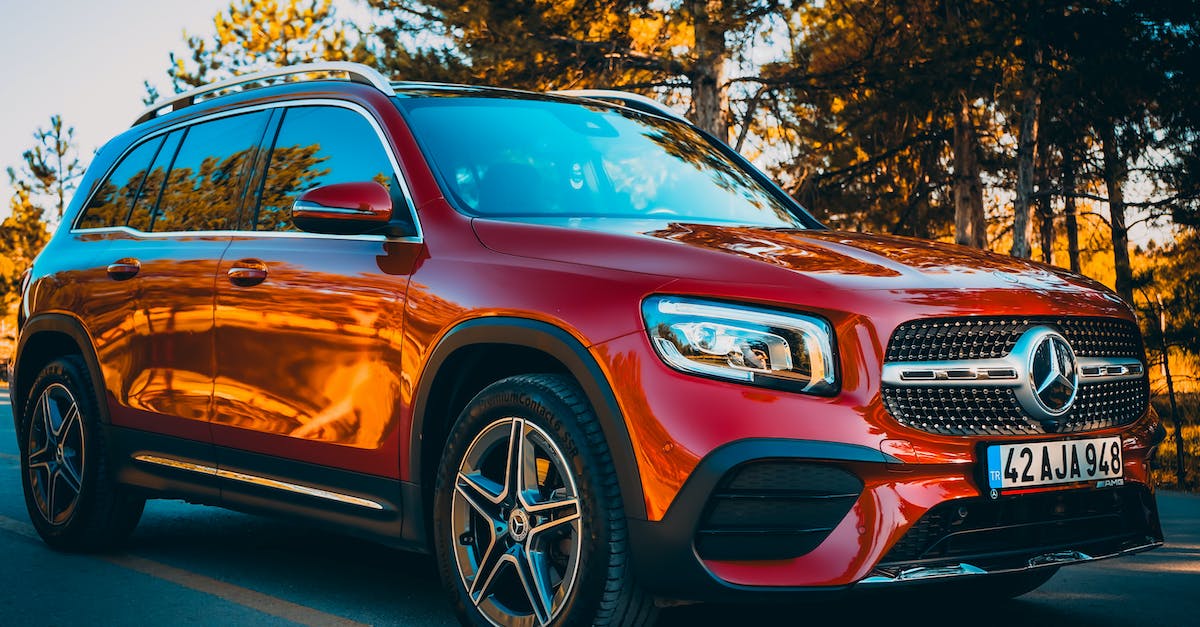Introduction
What is a salvage car?
A salvage car is a vehicle that has been damaged to the extent that it is deemed uneconomical to repair by an insurance company. These cars are typically involved in accidents, floods, or other incidents that result in significant damage. While salvage cars may have a negative connotation, they can also present an opportunity for savvy buyers. With the right knowledge and precautions, you can find a salvage car that meets your needs and can be repaired at a reasonable cost. However, it’s important to thoroughly inspect the vehicle, understand its history, and consider the potential risks before making a purchase.
Why choose a salvage car?
When it comes to purchasing a car, there are many options to consider. One option that is often overlooked is buying a salvage car. But why choose a salvage car? Well, there are several reasons why opting for a salvage car can be a smart choice. First and foremost, salvage cars are significantly cheaper compared to their non-salvage counterparts. This is because salvage cars have been previously damaged and repaired, which affects their market value. However, if you don’t mind a few cosmetic imperfections and are willing to put in some effort, you can get a great deal on a salvage car. Additionally, salvage cars can be a great option for those who enjoy working on cars and have the skills to repair them. With a salvage car, you have the opportunity to customize and restore it to your liking. Furthermore, salvage cars are often sold at auctions, providing a unique buying experience. So, if you’re looking for a budget-friendly and customizable car, choosing a salvage car might be the right choice for you.
Considerations before buying a salvage car
When considering buying a salvage car, there are several important factors to keep in mind. First, it is crucial to thoroughly inspect the vehicle for any damage or issues that may affect its safety and performance. Additionally, it is essential to research the car’s history and understand the extent of the previous damage it has sustained. Furthermore, it is important to consider the cost of repairs and whether it aligns with your budget. Lastly, it is advisable to consult with a professional mechanic or salvage car expert who can provide guidance and expertise in making the right choice. By carefully considering these factors, you can ensure that you choose the right salvage car for your needs.
Determining Your Needs

Identify your budget
When it comes to choosing the right salvage car for your needs, it is essential to first identify your budget. Your budget will determine the type of salvage car you can afford and the condition you should look for. By setting a budget, you can narrow down your options and focus on finding a salvage car that meets your financial constraints. Additionally, knowing your budget will help you avoid overspending and ensure that you make a practical and cost-effective choice. Take the time to evaluate your finances and determine how much you can comfortably spend on a salvage car before moving forward with your search.
Determine the purpose of the car
When it comes to choosing the right salvage car for your needs, one of the first steps is to determine the purpose of the car. Are you looking for a vehicle for daily commuting, or do you need a car for off-road adventures? Understanding the intended use of the car will help narrow down your options and ensure that you find a salvage car that meets your specific requirements. If you’re planning on using the car for daily commuting, factors such as fuel efficiency and reliability may be key considerations. On the other hand, if you’re looking for a car for off-road adventures, you might prioritize features like four-wheel drive and ruggedness. By determining the purpose of the car, you can make an informed decision and choose a salvage car that aligns with your needs and preferences.
Consider the repair costs
When considering the repair costs of a salvage car, it is important to carefully evaluate the extent of the damage and the associated expenses. Factors such as the availability of replacement parts, the complexity of the repairs, and the expertise required can greatly impact the overall cost. It is advisable to consult with a professional mechanic or body shop to get an accurate estimate of the repair expenses. Additionally, it is essential to consider whether the repair costs are within your budget and if the salvaged vehicle is worth the investment. Taking these factors into account will help you make an informed decision when choosing the right salvage car for your needs.
Researching Salvage Cars

Find reputable salvage car dealers
When looking for a salvage car, it is crucial to find reputable salvage car dealers. These dealers have a proven track record of providing reliable and high-quality salvage cars. They are transparent about the condition of the vehicles and offer fair pricing. By choosing a reputable dealer, you can ensure that you are getting a salvage car that meets your needs and is worth the investment. Researching and reading reviews about different salvage car dealers can help you make an informed decision and find a dealer that you can trust.
Check the vehicle history report
When it comes to choosing the right salvage car for your needs, one of the most important steps is to check the vehicle history report. This report provides valuable information about the car’s past, including any accidents, repairs, or title issues it may have had. By reviewing the vehicle history report, you can make an informed decision and ensure that the car meets your requirements. It is essential to check for any red flags in the report, such as a salvage title or a history of major damage. Additionally, the report can help you verify the car’s mileage and ownership history. Taking the time to thoroughly examine the vehicle history report will help you avoid potential problems and find a salvage car that suits your needs and budget.
Inspect the car thoroughly
When it comes to choosing the right salvage car for your needs, one important step is to inspect the car thoroughly. Before making a purchase, it is crucial to carefully examine the vehicle inside and out. This includes checking for any visible damage, such as dents, scratches, or rust. Additionally, it is essential to inspect the engine, transmission, and other mechanical components to ensure they are in good working condition. Taking the time to thoroughly inspect the car will help you make an informed decision and avoid any unexpected surprises down the road.
Understanding Salvage Titles

What is a salvage title?
A salvage title is a designation given to a vehicle that has been damaged or deemed a total loss by an insurance company. This could be due to various reasons such as accidents, natural disasters, or theft. When a vehicle is given a salvage title, it means that it is not fit to be driven on public roads without repairs and inspections. Salvage cars can be purchased at a significantly lower price compared to their non-salvage counterparts, making them an attractive option for budget-conscious buyers. However, it is important to thoroughly assess the condition of a salvage car and consider the potential costs of repairs before making a purchase.
Types of salvage titles
When it comes to choosing the right salvage car for your needs, understanding the different types of salvage titles is crucial. Salvage titles are given to vehicles that have been damaged or deemed a total loss by an insurance company. There are several types of salvage titles, including theft recovery, flood damage, collision damage, and fire damage. Each type of salvage title comes with its own set of considerations and potential risks. By familiarizing yourself with the different types of salvage titles, you can make an informed decision and find a salvage car that meets your needs and budget.
Implications of a salvage title
When it comes to purchasing a salvage car, one of the most important factors to consider is the implications of a salvage title. A salvage title indicates that the vehicle has been deemed a total loss by an insurance company due to damage, theft, or other reasons. This means that the car has undergone significant repairs and may have hidden issues that could affect its safety and performance. It is crucial for buyers to thoroughly inspect the vehicle and obtain a detailed history report to understand the extent of the damage and ensure they are making an informed decision. Additionally, it is important to consider that a salvage title can significantly affect the resale value of the car and may make it more challenging to obtain financing or insurance. Therefore, it is essential to weigh the potential risks and benefits before purchasing a salvage car.
Evaluating the Condition of the Car

Assessing the extent of damage
When it comes to assessing the extent of damage in a salvage car, there are a few key factors to consider. Firstly, it is important to thoroughly inspect the exterior of the car for any visible signs of damage such as dents, scratches, or rust. Additionally, examining the interior of the car is crucial to identify any potential issues with the seats, dashboard, or electronics. Another important aspect to assess is the mechanical condition of the car, including the engine, transmission, and suspension. Lastly, it is essential to evaluate the structural integrity of the vehicle to ensure it is safe and roadworthy. By carefully assessing these factors, you can make an informed decision when choosing the right salvage car for your needs.
Checking for structural issues
When choosing a salvage car, it is crucial to thoroughly inspect the vehicle for any structural issues. Structural issues can significantly affect the safety and performance of the car, so it is essential to identify them before making a purchase. Start by checking the car’s frame for any signs of damage or corrosion. Look for misalignments, cracks, or rust, as these can indicate structural problems. Additionally, inspect the car’s suspension system and ensure that all components are in good condition. Pay attention to any unusual noises or vibrations while driving, as they may indicate underlying structural issues. By thoroughly checking for structural issues, you can make an informed decision and choose a salvage car that meets your needs and ensures your safety on the road.
Examining the mechanical components
When examining the mechanical components of a salvage car, it is important to thoroughly assess its condition to ensure it meets your needs. Start by inspecting the engine, checking for any signs of damage or wear. Pay close attention to the transmission, brakes, and suspension system, as these are crucial for the car’s overall performance and safety. Additionally, evaluate the electrical system, including the battery and wiring, to ensure they are in good working order. By conducting a comprehensive examination of the mechanical components, you can make an informed decision and choose the right salvage car that suits your needs and budget.
Making an Informed Decision

Consulting with a mechanic
When it comes to choosing the right salvage car for your needs, consulting with a mechanic is crucial. A mechanic can provide valuable insights and expertise on the condition of the car, potential repairs needed, and the overall feasibility of the purchase. They can assess the extent of damage, evaluate the salvage car’s mechanical components, and determine if it’s worth investing in. Additionally, a mechanic can help you understand the potential costs involved in restoring and maintaining the salvage car, giving you a better idea of the financial commitment required. By consulting with a mechanic, you can make an informed decision and ensure that the salvage car you choose aligns with your needs and budget.
Considering the resale value
When considering the resale value of a salvage car, there are several factors to take into account. First and foremost, it is important to assess the extent of the car’s damage and determine if it can be repaired to a satisfactory condition. Additionally, researching the market demand for similar salvage cars can give you an idea of their potential resale value. It is also crucial to consider the reputation and reliability of the salvage car dealer or auction house you are purchasing from, as this can greatly affect the resale value. Lastly, factors such as the car’s make, model, and year can also impact its resale value. By carefully considering these factors, you can make an informed decision and choose the right salvage car that meets your needs and has a good resale value.
Understanding insurance coverage
Understanding insurance coverage is crucial when it comes to choosing the right salvage car for your needs. Insurance plays a vital role in protecting your investment and ensuring that you are financially covered in case of any unforeseen events or accidents. Before purchasing a salvage car, it is important to thoroughly understand the insurance coverage options available to you. This includes liability coverage, comprehensive coverage, and collision coverage. By understanding these different types of coverage, you can make an informed decision and select a salvage car that aligns with your insurance needs and budget. Additionally, it is advisable to consult with an insurance professional who can guide you through the process and provide expert advice on the best insurance options for your salvage car.










